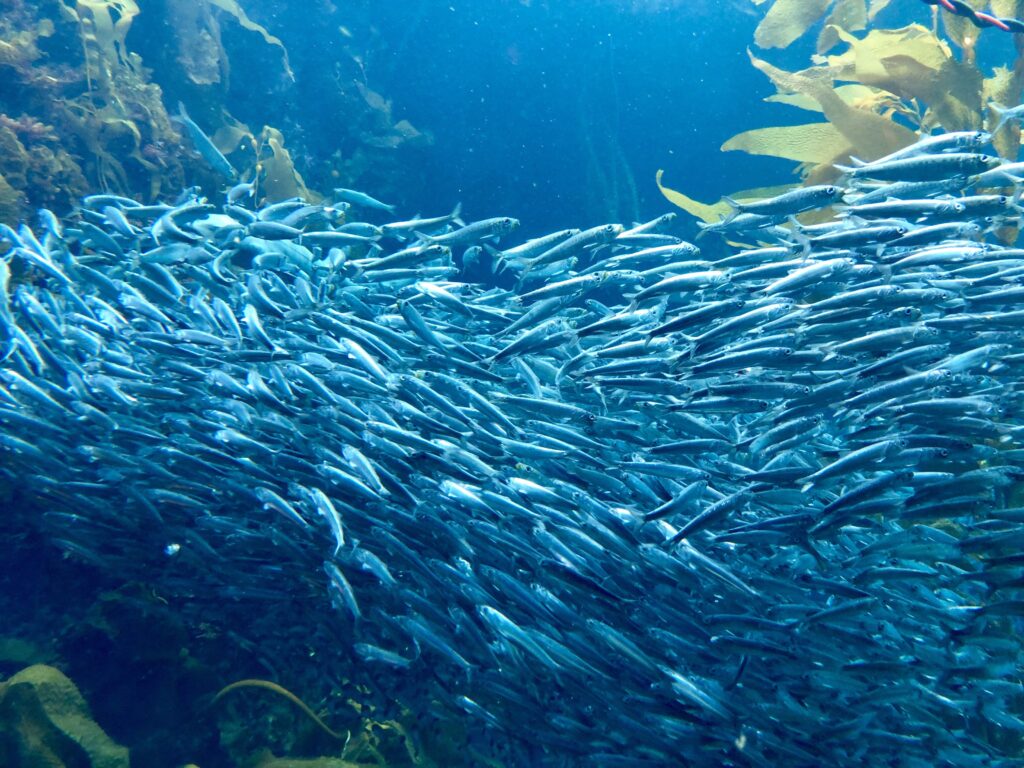Hajar El Oumrassi, fellow of the Women for Africa Foundation, achieves remarkable progress with her research at IHCantabria
Her research explores the environmental impact on the biology of sardines in the Moroccan Mediterranean Sea and provides perspectives for sustainable management of marine resources and biodiversity conservation.
Hajar El Oumrassi, a researcher of Moroccan origin, is spending ten months at the Institute of Environmental Hydraulics of the University of Cantabria(IHCantabria), as a result of the Learn Africa scholarship program of the Women for Africa Foundation (MxA).
“My experience as an MxA Foundation Fellow at IHCantabria has been a unique and enriching opportunity, one that has significantly shaped my academic career. Collaborating with the Coastal Ecosystems Group to develop part of my doctoral thesis has been a crucial step in my path as a researcher,” says Hajar El Oumrassi.
The Women for Africa scholarship holder highlights this institute as a place of cultural exchange. “During my stay, I have had the opportunity to meet people from different parts of the world, such as Iran, Japan, France, Egypt and China and other countries. This cultural exchange has enriched my experience, providing me with a broader and more global understanding of scientific research.” The period of her stay will end in July 2024.
The researcher studied Biology, Geology and Chemistry at the Université Abdelmalek Essaidi Tetouan in Tangier, Morocco. At that university he studied, in French, a Master’s program in marine environment and aquaculture. He is currently in his fourth year of his doctorate and is developing a project on the abundance of sardines.
Ever since she was a child, El Oumrassi had the illusion of studying in Spain, and so she began studying Spanish in 2017. She believes that her dream came true when she was selected by the MxA Foundation and when she was welcomed by the University of Cantabria, to join IHCantabria as a scholarship holder.
Advances in his doctoral research
Hajar El Oumrassi is succeeding in meeting the objectives of her research, which focuses on the impact of environmental factors on the biological characteristics of sardines in the Moroccan Mediterranean.
“The team at this institute is providing me with valuable support by helping me to develop bioinformatics models,” says this researcher, who highlights IHCantabria’s experience in creating similar models for other species, which has been fundamental for her to explore the current and future impact of the variables she is researching in sardine biology.
With enthusiasm, she reports that she will participate with a poster at the United Nations “Decade of Oceans 2024 Conference”, to be held April 10-12 this year in Barcelona. At this conference, Hajar El Oumrassi will report some results of his research, highlighting some of the socioeconomic challenges facing an aging population dependent on tuna fishing in Morocco and proposing solutions that promote sustainable development.
Hajar El Oumrassi’s research project and future plans.
Hajar El Oumrassi’s research project focuses mainly on the body condition, growth and abundance of sardine in the Mediterranean. Its objective is to provide useful information for the sustainable management of marine resources and the conservation of biodiversity. For its development, it employs a comprehensive approach that incorporates data analysis to understand how environmental factors influence the health and population dynamics of sardines.
“Being away from family is hard, but the learning I am gaining makes up for the sacrifice,” says El Oumrassi, who admits that her stay at IHCantabria not only brings him advances for his doctoral research, but also a clearer view on the daily work of research staff. “My experience in Spain has been truly fascinating, especially finding myself in the city of Santander. I am deeply grateful for the fellowship, because it has not only allowed me to advance my research, but also to discover this beautiful city,” she says.
After completing her doctoral studies, Hajar El Oumrassi would like to carry out a postdoctoral stay and further develop the line of research she is working on, in order to contribute to the search for sustainable solutions for those who depend on fishing.
Relationship between the University of Cantabria and the Women for Africa Foundation
The University of Cantabria, through the Vice Rectorate for Internationalization and Global Engagement, and the Women for Africa Foundation (MxA) maintain a stable collaboration framework since 2016, which has materialized in the research stay of African students in this Cantabrian institution, mainly in IHCantabria, where Hajar El Oumrassi is the fourth beneficiary of the scholarship program. Learn Africa, from the MxA Foundation.
Learn Africa Scholarship Program
This programme was launched in 2013 with the aim of promoting knowledge transfer, exchange, and training for African female university students through scholarships offered by Spanish universities. All this has been possible thanks to the commitment and dedication of a wide network of more than 50 collaborators, including universities, educational centers and donors.
Women for Africa Foundation (MxA)
It is a Spanish private, non-profit entity, created in February 2012. Its main objective is to contribute to the development of the African continent through the support and accompaniment of its women, who are the driving force behind its progress. This foundation is committed to and works for democracy, governance, peace, human rights and sustainable economic and social development, in terms of equality.
This is a joint research institute that emerged thanks to the collaboration between two institutions: the Universidad de Cantabria and the Government of Cantabria, represented through the Fundación Instituto de Hidráulica Ambiental de Cantabria.

Hajar El Oumrassi’s doctoral research explores environmental impact on sardine biology in the Moroccan Mediterranean Sea



